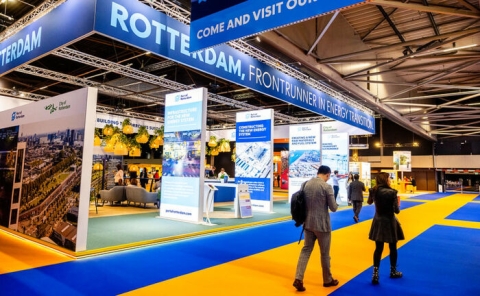Key Strategies for Elevating Large-Scale Event Planning

Sponsored by MCI
Pulling off a seamless large-scale event, whether a trade show, conference or expo, requires more than just logistical prowess. Success hinges on a strategic approach that incorporates four essential pillars: structured planning, integrated technology, clear communication and meaningful engagement. From streamlining operations to maximizing attendee experience, these elements work together to create impactful events that leave a lasting impression. Here’s how to make them work for you.
Technology Integration
The right tech tools don’t just simplify logistics, they enhance the entire experience, driving efficiency and engagement in real time.
Smart automation reduces administrative bottlenecks, while integrated event platforms — spanning registration, mobile apps and CRM systems — ensure seamless data flow. This connectivity minimizes errors and frees up time to focus on creating memorable moments for attendees. Innovative solutions such as AI-powered matchmaking, augmented reality activations and live polling further boost engagement. “One strategy that’s transformed our events is real-time feedback tracking,” says Sierra Davey, events manager at MCI USA. “It enables on-the-spot adjustments, improving attendee satisfaction and operational fluidity.”
Structured Planning
A well-structured event plan also builds in flexibility. Successful event organizers develop detailed roadmaps while anticipating potential disruptions.
Contingency planning is crucial. Whether it’s a last-minute venue change, Wi-Fi outage or unexpected weather shift, having backup solutions in place ensures the event stays on track. Regular risk assessments and team drills help prepare staff to pivot when needed.

Clear Communication
From exhibitors and sponsors to vendors and attendees, clear and consistent communication is non-negotiable. Keeping all stakeholders aligned prevents misunderstandings and builds trust.
Pre-event messaging should go beyond logistical updates; think personalized outreach that drives excitement and engagement. Once the event is underway, real-time updates via mobile apps and digital signage keep attendees informed and involved.
Attendee Engagement
The most successful trade shows and conferences prioritize interactivity, fostering deeper connections between attendees, exhibitors and speakers. Gamification, immersive experiences and personalized content recommendations enhance engagement, while live Q&As, networking lounges and community-driven activations create opportunities for deeper interaction.
Post-Event Insights
The event doesn’t end when the doors close. Collecting feedback from attendees, exhibitors and sponsors is essential for refining future strategies. Surveys, heat-mapping technology and session analytics offer data-driven insights into what worked and what didn’t.
Large-scale event success is about creating a dynamic, engaging experience that delivers value for all stakeholders. By leveraging technology, planning with foresight, maintaining clear communication and prioritizing engagement, organizers can design experiences that spark new opportunities and shape the future of their organization.
About MCI
MCI is a global engagement marketing agency that designs human-centric solutions that unleash the power of people to deliver innovation and growth for its clients. MCI’s offerings include live and virtual events, strategic and digital communications, consulting and community solutions. MCI helps brands, companies, associations, and not-for-profits solve their challenges, bringing their people together to shape their tomorrow. MCI is an independently owned company headquartered in Geneva, Switzerland, with a global presence in 60 offices across 31 countries. MCI's U.S. headquarters is in the Washington, D.C., area with offices in Baltimore, Dallas and Chicago.


Add new comment